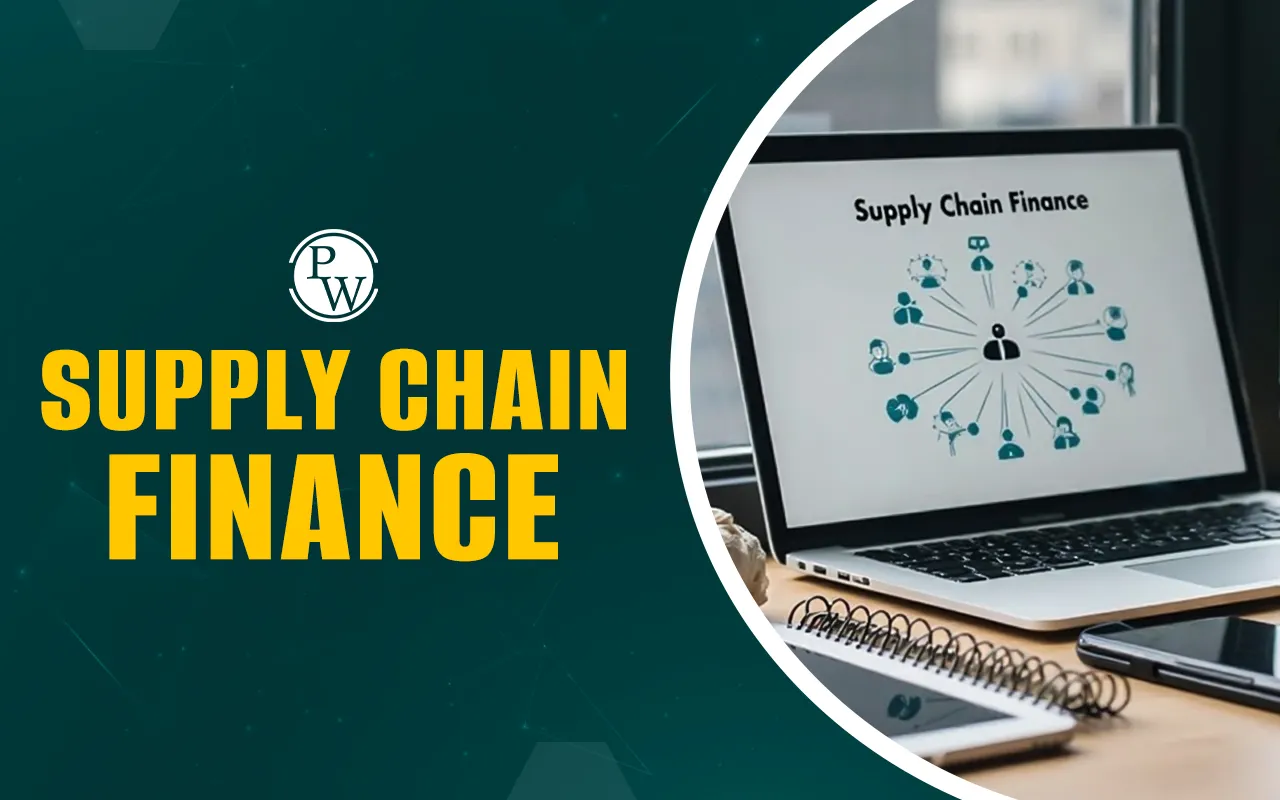
Supply chain finance is a transformative solution, designed to enhance financial efficiency and foster collaboration between buyers and suppliers. By using technology, this financial model provides short-term credit solutions that optimize working capital and improve liquidity for all parties involved. Whether you're a supplier seeking faster payments or a buyer aiming for extended payment terms, supply chain finance serves as a win-win mechanism, enabling businesses to operate more seamlessly in today’s interconnected markets.
Here, we’ll provide supply chain finance meaning, how it works, and give you a real-world example to make this powerful tool easier to understand.
Supply chain finance (SCF) refers to a set of technology-driven financial practices that improve the cash flow for both buyers and suppliers. Instead of waiting for invoices to be paid after 30, 60, or even 90 days, suppliers can get paid almost instantly through third-party financiers. Meanwhile, buyers get more flexible payment terms.
This is possible because SCF relies on the buyer's strong credit profile. Financial institutions are more willing to release payments to the supplier based on the buyer's ability to eventually settle the invoice. This trust-based approach helps eliminate the financial friction that typically slows down business operations.
In simpler words, supply chain finance helps ensure that no one in the chain has to suffer a liquidity crunch. It enhances the entire ecosystem of trade.
Read More - Financial Objectives, Definition, Types and Examples
The following is a typical transaction to understand the supply chain in finance.
The supplier delivers goods/services to the buyer.
The supplier issues an invoice.
The buyer approves the invoice but requests extended payment terms.
A third-party financial institution pays the supplier on behalf of the buyer—often at a slight discount.
The buyer repays the financier within the extended term, say 60 or 90 days.
This process is commonly known as reverse factoring. Instead of the supplier going out and arranging their own financing (which usually comes with high interest rates), they benefit from the buyer’s stronger creditworthiness.
It’s a collaborative approach that improves the supplier's cash flow without putting pressure on the buyer's liquidity.
Imagine Company ABC, a big electronics manufacturer, orders circuit boards from Supplier XYZ. Normally, Company ABC pays Supplier XYZ 30 days after receiving the goods. But XYZ needs cash urgently and can't wait that long.
With supply chain finance, Company ABC can partner with a bank or fintech platform that pays XYZ right after the invoice is approved. This means XYZ gets paid faster, and ABC still gets to pay 30 or 60 days later, depending on the agreement.
This type of win-win situation is why supply chain finance is gaining traction globally, especially in industries like manufacturing, automotive, and retail, where transaction volumes are high.
Read More - Finance Charge, Overview and How It Works?
The role of supply chain finance goes beyond simply easing cash flow. It creates a level playing field where even smaller suppliers can thrive without struggling to meet working capital needs.
For buyers, it enhances relationships with suppliers, ensuring fewer disruptions in the delivery of goods and services. For suppliers, it means more stability and room to focus on growth instead of worrying about payments.
Moreover, companies that adopt SCF often report improved supply chain resilience and reduced costs. By building trust and financial collaboration, businesses become more agile, responsive, and competitive.
The rise of supply chain finance has also created exciting career opportunities. From financial analysts and credit risk managers to fintech solution architects and supply chain consultants, the world of supply chain finance jobs is expanding rapidly.
Professionals in this space get to work at the intersection of finance, technology, and global trade. They analyze creditworthiness, design digital solutions, and manage large-scale vendor financing programs. It’s a career path filled with dynamic roles and impactful responsibilities.
If you're passionate about transforming the financial side of business logistics, supply chain finance jobs could be your calling.
In the current global landscape, businesses face inflation, supply disruptions, and heightened competition. Supply chain finance acts like a financial cushion that helps companies maintain smooth operations despite economic turbulence.
It's also a crucial tool for supporting small and medium enterprises (SMEs), which often struggle with limited access to capital. By leveraging their buyers’ credit ratings, SMEs can get timely payments and reinvest in business growth.
SCF is more than a financial tactic; it's a strategic enabler for the entire supply chain.
Understanding and implementing supply chain finance successfully requires more than just theoretical knowledge. You need real-world financial modeling skills, strategic thinking, and the ability to evaluate cash flow across multiple stakeholders.
That’s why we recommend the PW Financial Modeling Course with Deloitte Learning Academy. Whether you're aiming for a role in supply chain finance jobs or want to strengthen your organization’s financial strategy, this course equips you with industry-recognized tools and insights. It's tailored to help you master SCF principles and elevate your career in finance.
Take the next step toward becoming a future-ready finance professional with PW Financial Modeling Course with Deloitte Learning Academy.
